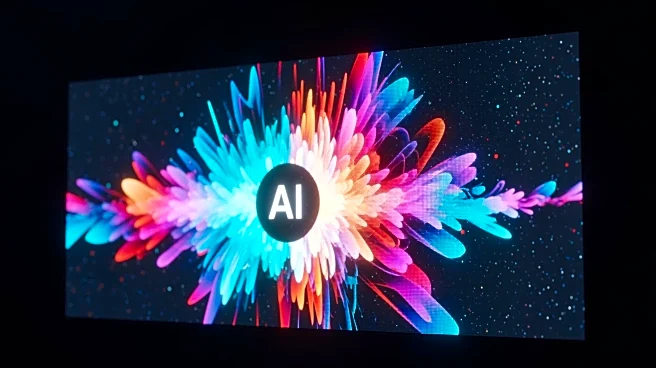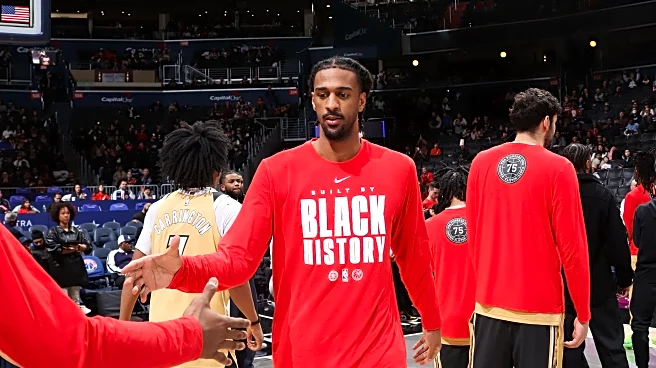What's Happening?
Meta has announced the launch of 'Vibes', a short-form video feed featuring AI-generated content, in Europe. This follows its initial introduction in the U.S. six weeks prior. Vibes allows users to create
and share AI-generated videos, with a personalized feed that adapts to user interests over time. The platform encourages social collaboration, enabling users to remix and co-create content with friends. Despite Meta's previous emphasis on authentic storytelling, the company is now promoting AI-generated content, which has sparked criticism due to concerns over the quality of such content, often referred to as 'AI slop'.
Why It's Important?
The introduction of Vibes highlights the growing influence of AI in content creation, potentially reshaping social media dynamics. While Meta embraces AI-generated content, other platforms like YouTube are taking steps to address the proliferation of low-quality AI content. This shift could impact content creators, who may need to adapt to new technologies and audience preferences. The move also raises questions about content originality and the balance between innovation and maintaining quality standards in digital media.
What's Next?
As Meta continues to expand Vibes, it may face scrutiny from users and industry stakeholders concerned about content quality. The company might need to address these concerns to maintain user engagement and trust. Additionally, other social media platforms may respond by implementing measures to ensure content quality, potentially influencing industry standards. The evolution of AI-generated content could lead to new opportunities and challenges for creators and platforms alike.
Beyond the Headlines
The launch of Vibes could have broader implications for digital content ownership and the role of AI in creative processes. As AI-generated content becomes more prevalent, questions about intellectual property rights and ethical considerations may arise. This development might also influence cultural perceptions of creativity and originality, prompting discussions about the value of human versus machine-generated content.











